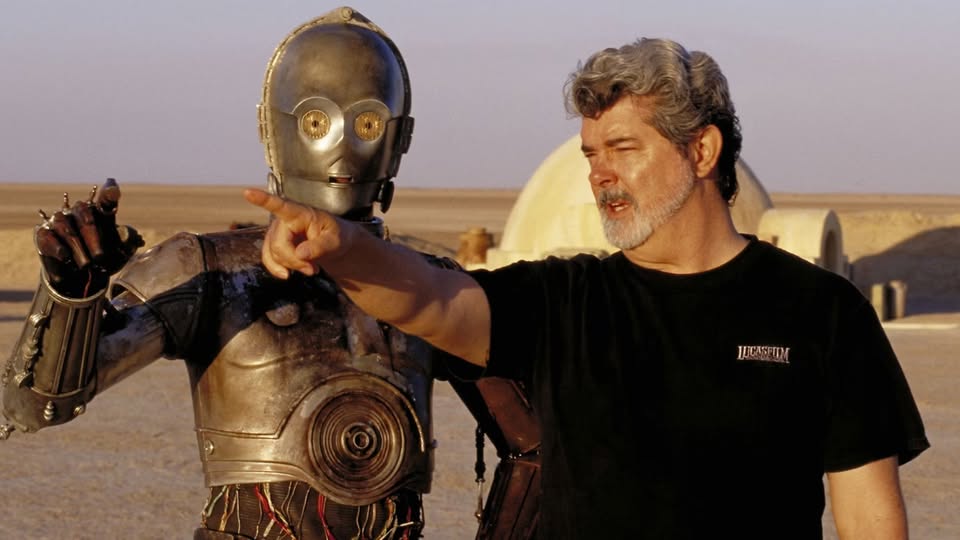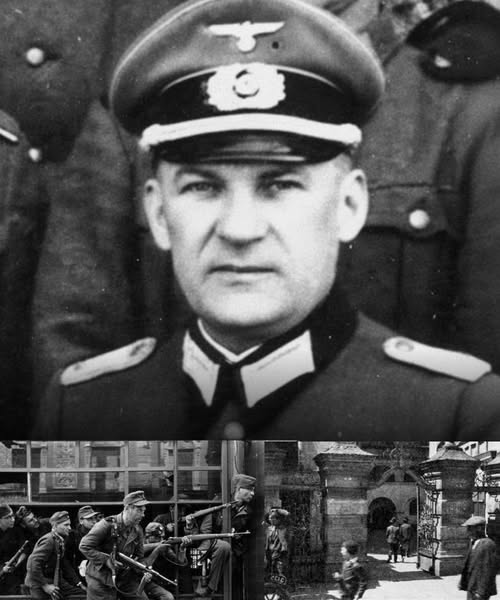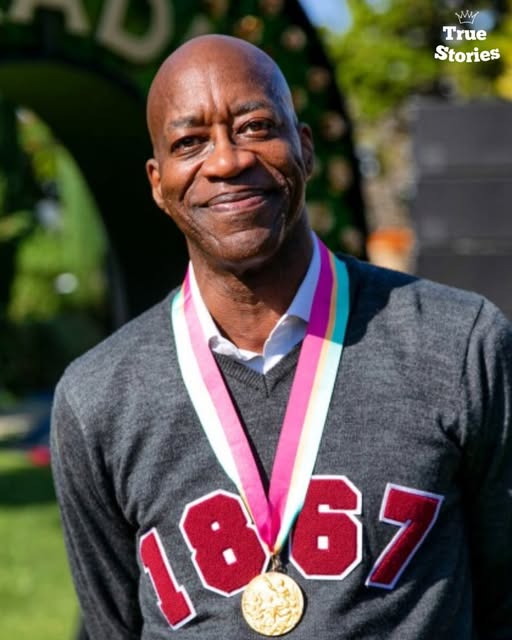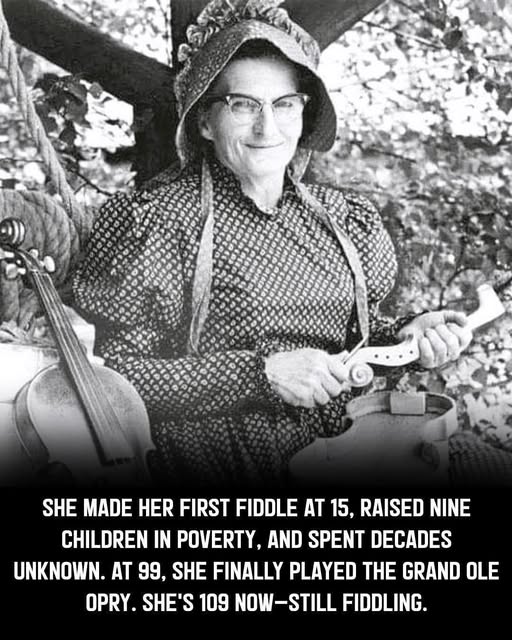
Question Everything

by Jeff Thomas
The average person in the First World receives more information than he would if he lived in a Second or Third World country. In many countries of the world, the very idea of twenty-four hour television news coverage would be unthinkable, yet many Westerners feel that, without this constant input, they would be woefully uninformed.
Not surprising, then, that the average First Worlder feels that he understands current events better than those elsewhere in the world. But, as in other things, quality and quantity are not the same.
The average news programme features a commentator who provides “the news,” or at least that portion of events that the network deems worthy to be presented. In addition, it is presented from the political slant of the controllers of the network. But we are reassured that the reporting is “balanced,” in a portion of the programme that features a panel of “experts.”
Customarily, the panel consists of the moderator plus two pundits who share his political slant and a pundit who has an opposing slant. All are paid by the network for their contributions. The moderator will ask a question on a current issue, and an argument will ensue for a few minutes. Generally, no real conclusion is reached—neither side accedes to the other. The moderator then moves on to another question.
So, the network has aired the issues of the day, and we have received a balanced view that may inform our own opinions.
Or have we?
Shortcomings
In actual fact, there are significant shortcomings in this type of presentation:
The scope of coverage is extremely narrow. Only select facets of each issue are discussed.
Generally, the discussion reveals precious little actual insight and, in fact, only the standard opposing liberal and conservative positions are discussed, implying that the viewer must choose one or the other to adopt as his own opinion.
On a programme that is liberally-oriented, the one conservative pundit on the panel is made to look foolish by the three liberal pundits, ensuring that the liberal viewer’s beliefs are reaffirmed. (The reverse is true on a conservative news programme.)
Each issue facet that is addressed is repeated many times in the course of the day, then extended for as many days, weeks, or months as the issue remains current. The “message,” therefore, is repeated virtually as often as an advert for a brand of laundry powder.
So, what is the net effect of such news reportage? Has the viewer become well-informed?
In actual fact, not at all. What he has become is well-indoctrinated.
A liberal will be inclined to regularly watch a liberal news channel, which will result in the continual reaffirmation of his liberal views. A conservative will, in turn, regularly watch a conservative news channel, which will result in the continual reaffirmation of his conservative views.
Many viewers will agree that this is so, yet not recognise that, essentially, they are being programmed to simply absorb information. Along the way, their inclination to actually question and think for themselves is being eroded.
Alternate Possibilities
The proof of this is that those who have been programmed, tend to react with anger when they encounter a Nigel Farage or a Ron Paul, who might well challenge them to consider a third option—an interpretation beyond the narrow conservative and liberal views of events. In truth, on any issue, there exists a wide field of alternate possibilities.
By contrast, it is not uncommon for people outside the First World to have better instincts when encountering a news item. If they do not receive the BBC, Fox News, or CNN, they are likely, when learning of a political event, to think through, on their own, what the event means to them.
As they are not pre-programmed to follow one narrow line of reasoning or another, they are open to a broad range of possibilities. Each individual, based upon his personal experience, is likely to draw a different conclusion and, thorough discourse with others, is likely to continue to update his opinion each time he receives a new viewpoint.
As a result, it is not uncommon for those who are not “plugged-in” to be not only more open-minded, but more imaginative in their considerations, even when they are less educated and less “informed” than those in the First World.
Whilst those who do not receive the regular barrage that is the norm in the First World are no more intelligent than their European or American counterparts, their views are more often the result of personal objective reasoning and common sense and are often more insightful.
Those in First World countries often point with pride at the advanced technology that allows them a greater volume of news than the rest of the world customarily receives.
Further, they are likely to take pride in their belief that the two opposing views that are presented indicate that they live in a “free” country, where dissent is encouraged.
Unfortunately, what is encouraged is one of two views—either the liberal view or the conservative view. Other views are discouraged.
The liberal view espouses that a powerful liberal government is necessary to control the greed of capitalists, taxing and regulating them as much as possible to limit their ability to victimise the poorer classes.
The conservative view espouses that a powerful conservative government is needed to control the liberals, who threaten to create chaos and moral collapse through such efforts as gay rights, legalised abortion, etc.
What these two dogmatic concepts have in common is that a powerful government is needed.
Each group, therefore, seeks the increase in the power of its group of legislators to overpower the opposing group. This ensures that, regardless of whether the present government is dominated by liberals of conservatives, the one certainty will be that the government will be powerful.
When seen in this light, if the television viewer were to click the remote back and forth regularly from the liberal channel to the conservative channel, he would begin to see a strong similarity between the two.
It’s easy for any viewer to question the opposition group, to consider them disingenuous—the bearers of false information. It is far more difficult to question the pundits who are on our own “team,” to ask ourselves if they, also, are disingenuous.
This is especially difficult when it’s three to one—when three commentators share our political view and all say the same thing to the odd-man-out on the panel. In such a situation, the hardest task is to question our own team, who are clearly succeeding at beating down the odd-man-out.
Evolution of Indoctrination
In bygone eras, the kings of old would tell their minions what to believe and the minions would then either accept or reject the information received. They would rely on their own experience and reasoning powers to inform them.
Later, a better method evolved: the use of media to indoctrinate the populace with government-generated propaganda (think: Josef Goebbels or Uncle Joe Stalin).
Today, a far more effective method exists—one that retains the repetition of the latter method but helps to eliminate the open-ended field of alternate points of view. It does so by providing a choice between “View A” and “View B.”
In a democracy, there is always an “A” and a “B.” This illusion of choice is infinitely more effective in helping the populace to believe that they have been able to choose their leaders and their points of view.
In the modern method, when voting, regardless of what choice the individual makes, he is voting for an all-powerful government. (Whether it calls itself a conservative one or a liberal one is incidental.)
Likewise, through the modern media, when the viewer absorbs what is presented as discourse, regardless of whether he chooses View A or View B, he is endorsing an all-powerful government.
Two Solutions
One solution to avoid being brainwashed by the dogmatic messaging of the media is to simply avoid watching the news. But this is difficult to do, as our associates and neighbours are watching it every day and will want to discuss with us what they have been taught.
The other choice is to question everything.
To consider that the event that is being discussed may not only be being falsely reported, but that the message being provided by the pundits may be consciously planned for our consumption.
This is difficult to do at first but can eventually become habit. If so, the likelihood of being led down the garden path by the powers-that-be may be greatly diminished. In truth, on any issue, there exists a wide field of alternate possibilities.
Developing your own view may, in the coming years, be vital to your well-being.
Source: https://internationalman.com/articles/question-everything/
Things Men Want

Snowman

In February 1956, Harry deLeyer arrived late to a horse auction in Pennsylvania.
The auction was over. The valuable horses were gone. The only animals left were the ones nobody wanted—skinny, used-up horses being loaded onto a truck bound for the slaughterhouse in Northport.
Harry was a 28-year-old Dutch immigrant who taught riding at a private school on Long Island. He needed quiet horses for his beginner students. Nothing fancy. Just something safe.
Then he saw him.
A gray gelding, eight years old, filthy and covered in scars from years pulling an Amish plow. The owner warned Harry against buying him. “He’s not sound. He has a hole in his shoulder from the plow harness.”
Harry looked at the horse anyway.
Wide body. Calm demeanor. Intelligent eyes. Good legs despite everything.
“How much?”
“Eighty dollars.”
Harry paid it. The horse stepped off the slaughter truck and into history.
His daughter named him Snowman.
For a few months, Snowman was exactly what Harry needed—a gentle lesson horse the children loved. So gentle, in fact, that Harry eventually sold him to a local doctor for double what he’d paid.
The doctor took Snowman home.
Snowman had other plans.
The next morning, Snowman was back in Harry’s barn.
The doctor took him home again. Built higher fences.
Snowman jumped them. Came back.
Five-foot fences. The horse who’d spent his life pulling a plow was clearing five-foot fences like they were nothing.
Harry stared at this $80 plow horse and saw something nobody else had seen.
Maybe this horse could jump.
In 1958—exactly two years after Harry pulled him off that slaughter truck—Snowman and Harry deLeyer walked into Madison Square Garden.
They were competing against America’s elite show jumpers. Horses with perfect bloodlines. Horses worth tens of thousands of dollars. Horses owned by millionaires who’d never looked at a plow, much less pulled one.
Snowman was still that wide, plain gray gelding.
Still had scars on his shoulder.
Still had the thick neck and powerful hindquarters of a working farm horse.
He won.
Not just won—dominated. The AHSA Horse of the Year. The Professional Horsemen’s Association championship. The National Horse Show championship. Show jumping’s triple crown.
The press went wild. LIFE Magazine called it “the greatest ‘nags-to-riches’ story since Black Beauty.”
They called Snowman “The Cinderella Horse.”
In 1959, they did it again.
Back to Madison Square Garden. Back against the blue-blood horses and their millionaire owners.
Snowman won again. Horse of the Year. Again.
The crowd couldn’t get enough of them. This immigrant riding instructor and his $80 rescue horse, beating horses that cost more than houses.
Snowman jumped obstacles up to seven feet, two inches high. He jumped over other horses. He jumped with a care and precision that made it look easy, even when it wasn’t.
And here’s the part that made people love him even more: the same horse who cleared seven-foot jumps on Saturday could lead a child around the ring on Sunday. Snowman could win an open jumper championship in the morning and a leadline class in the afternoon.
He was called “the people’s horse.”
Snowman and Harry traveled the world. They appeared on television shows. Johnny Carson. National broadcasts. Snowman became as famous as any human athlete.
Secretariat wouldn’t be born for another decade. But people compared Snowman to Seabiscuit—another long-shot champion who’d captured America’s heart in darker times.
The Cold War was raging. The country was anxious. And here was this story: an immigrant and a rescue horse, proving that being born into nothing didn’t mean you were worth nothing.
That the $80 horse could beat the $30,000 horses.
That where you came from mattered less than where you were willing to go.
Snowman competed until 1969.
His final performance was at Madison Square Garden, where it had all started. He was 21 years old—elderly for a show jumper. The crowd gave him a standing ovation. They sang “Auld Lang Syne.”
He retired to Harry’s farm in Virginia, where he lived peacefully for five more years.
Children still came to see him. To touch the horse who’d become a legend. To feed carrots to the champion who’d once been hours away from becoming dog food.
Snowman died on September 24, 1974.
He was 26 years old. Kidney failure.
Harry deLeyer kept teaching, kept training, kept competing. He never found another horse like Snowman. Nobody did.
In 1992—eighteen years after Snowman’s death—the horse was inducted into the Show Jumping Hall of Fame.
In 2011, author Elizabeth Letts wrote “The Eighty-Dollar Champion: Snowman, the Horse That Inspired a Nation.” It became a #1 New York Times bestseller.
In 2015, when Harry was 86 years old, a documentary premiered: “Harry & Snowman.” For the first time, Harry told the whole story himself. His childhood in Nazi-occupied Netherlands, where his family hid Jews in a secret cellar beneath the barn. His immigration to America with nothing. His late arrival at that Pennsylvania auction.
That gray horse on the slaughter truck.
Eighty dollars.
That’s what it cost to save Snowman’s life.
It’s also what it cost to prove that champions aren’t always born in fancy stables with perfect bloodlines.
Sometimes they’re born in Amish fields, pulling plows until their shoulders scar.
Sometimes they’re saved by immigrants who arrive late to auctions and see something nobody else saw.
Sometimes the longest long shot becomes the surest thing.
Harry deLeyer died on June 25, 2021, at age 93.
The obituaries called him many things: riding instructor, champion, immigrant, hero.
But the title he probably loved most was simple.
Snowman’s rider.
The man who paid $80 for a plow horse and got a friend, a champion, and a story that would last forever.
You Are Valuable, Unique and Important
“What each must seek in his life never was on land or sea. It is something out of his own unique potentiality for experience, something that never has been and never could have been experienced by anyone else.”
Joseph Campbell – Author (1904 – 1987)
I have collected some ideas that will help you work out your basic purpose in life based on you personality, what you like doing and what your are good at. Check them out:
How To Work Out Your Basic Purpose
https://www.tomgrimshaw.com/tomsblog/?p=37862
This Season Of Earth Is Crazy

Never a truer word spoken! If you live in Sydney would like to help me do something to make it less crazy, give me a call!
Dr Brian May

Albert Battel

Edwin Moses

Violet Hensley

In 1931, a fifteen-year-old girl in the Arkansas backwoods told her father she wanted to make a fiddle.
He pointed to his tools and a pile of wood. “There’s what you need. Help yourself.”
Violet Brumley picked up a knife and started whittling.
Her father, George Washington Brumley, had made his first fiddle in 1888 when he was fourteen years old—back when homesteaders built everything themselves because buying wasn’t an option. He’d traded fiddles for wagons, shotguns, milk cows. A fiddle was worth a dollar, maybe, if you sold it for cash.
Violet watched him work, learning which woods sang and which stayed silent. She memorized the curve of the neck, the arch of the top, the precise placement of the sound post. No blueprints. No instruction manual. Just memory and feel.
It took her months to finish that first fiddle. When she drew the bow across the strings, the sound was perfect.
She was hooked.
But life had other plans.
At eighteen, Violet married Adren Hensley. The babies started coming—nine children in all, born while the family scraped by on subsistence farming. They were so poor, Violet later joked, that “if the flies had anything to eat, they’d bring their own food.”
Between 1932 and 1934, she made three more fiddles. Then fiddle number four.
Then nothing. For twenty-seven years.
Nine children don’t raise themselves. Fields don’t plow themselves. There was no time for five-gallon buckets of wood shavings and 250-hour crafting projects when you were trying to keep your family fed.
The fiddles gathered dust. The music stayed quiet.
The family moved to Oregon to pick fruit—strawberries, potatoes, prunes. Migrant work. Survival. In 1959, they heard about cheap land near Yellville, Arkansas—forty acres for $250. They moved back, bought the land, started over.
Violet was in her forties. Her children were growing up. And slowly, quietly, she picked up her knife again.
In 1961, she made fiddle number five.
The break was over. She was a fiddle maker again.
By 1962, at age forty-six, someone convinced her to enter the local Turkey Trot Talent Show in Yellville. She came in second. At the show, she met Jimmy Driftwood, a folk musician who invited her to play at his theater in Mountain View.
That led to the War Eagle Craft Fair.
Which led to Silver Dollar City discovering her in 1967.
The theme park in Branson, Missouri, originally wanted her as a woodcarver. But when they heard her play the fiddles she’d made with her own hands—heard her unique style, her Ozark rhythms, her refusal to play like anyone else—they changed their minds.
They wanted her to fiddle.
And suddenly, after fifty years of obscurity, Violet Hensley became famous.
Not movie-star famous. Folk-legend famous. The kind where Charles Kuralt shows up to interview you for CBS News. Where National Geographic features you in 1970. Where producers from Captain Kangaroo and The Beverly Hillbillies call asking if you’ll appear on their shows.
She traveled to promote Silver Dollar City, appearing on The Art Linkletter Show in 1970, walking around eating ice cream with “Granny” when The Beverly Hillbillies filmed episodes at the park. In 1977, she danced with Mr. Green Jeans on Captain Kangaroo. In 1992, she was on Live with Regis and Kathie Lee.
Through it all, she kept making fiddles. Seventy-four in total, each one taking about 260 hours of work. She used native Ozark woods—buckeye, sassafras, pine, spruce, basswood, cherry, curly maple, bird’s eye maple, quilted maple. She’d cut down the trees herself with a handsaw.
“Someone asked me a long time ago what my secret was of putting the tone into a fiddle,” she said. “The tone just comes in with the wood as best as I can figure.”
Her fiddles became treasures. Collectors paid thousands. Museums displayed them. But Violet kept a few she wouldn’t sell for any price.
She also learned to clog at age sixty-nine—doctor’s orders, after they told her to stop breaking horses and bareback riding. Her signature move became playing the fiddle on top of her head while clogging, her face beaming with pure joy.
For decades, she demonstrated at Silver Dollar City’s festivals. She released three albums with her family—daughters Sandra and Lewonna, husband Adren, son Calvin. The old-time tunes her father had taught her, songs that weren’t widely circulated, preserved through her hands and voice.
In 2004, the Arkansas Arts Council designated her an Arkansas Living Treasure.
But Violet had one dream left.
She’d grown up listening to the Grand Ole Opry on a battery-powered radio when she was nine years old, just after the show debuted in 1925. For ninety years, she’d listened to that program, playing along in her Arkansas cabin, imagining what it would be like to stand on that stage.
It seemed impossible. She was too old, too unknown, too far from Nashville’s spotlight.
Then fiddler Tim Crouch read her autobiography and found mention of her dream. He contacted Opry star Mike Snider.
And on August 6, 2016, at ninety-nine years old, Violet Hensley walked onto the Grand Ole Opry stage.
She wore a purple dress hand-sewn by her daughter Sandra. She carried fiddle number four, the one she’d made when she was seventeen years old.
The audience of 4,400 people rose to their feet before she even played a note.
Snider warned them: “This little lady plays her way.“
Violet launched into “Angelina Baker,” and the band scrambled to keep up with her rapid-fire fiddling. Her unique style—developed in isolation, learned from her father and the old-time fiddlers of the Ozarks—was unlike anything Nashville had heard.
When she finished, the applause was thunderous.
She returned in 2017 for her 100th birthday. Then again in 2018. Three times on the Opry stage, each time leaving audiences with their jaws on the floor.
In 2018, at age 101, she was inducted into the National Fiddler Hall of Fame.
And she kept going.
At 105, she contracted COVID-19. Her symptoms were mild. She recovered.
Today, at 109 years old, Violet Hensley is still alive in Yellville, Arkansas.
Her vision is too poor to make complete fiddles now, but she can still whittle by feel. She still demonstrates her craft. She still plays—fifty-eight years performing at Silver Dollar City and counting.
Her daughters say that while her muscles and words may fail her sometimes, the music never does. “For 109, she probably remembers more than we know, but just can’t say it. She feels it.”
The girl who made her first fiddle in poverty, who spent decades raising children in obscurity, who didn’t become famous until she was in her fifties, who finally achieved her lifelong dream at ninety-nine—she’s still here.
A living bridge to an Ozarks that barely exists anymore. A testament to craft, to patience, to the long game. A reminder that dreams don’t have expiration dates.
Her story started with a father telling his daughter to help herself to his tools. It continues with a 109-year-old woman whose handmade fiddles are museum pieces, whose music has inspired generations, whose life proves that fame delayed isn’t fame denied.
Violet Hensley didn’t become a legend by starting early or burning bright and fast.
She became a legend by never stopping. By making seventy-four fiddles one knife stroke at a time. By playing the music she loved for a century, whether anyone was listening or not.
And when the world finally noticed, she was ready. She’d been practicing for ninety years.
Would you have had the patience to spend decades perfecting a craft in obscurity, knowing your moment might never come?
